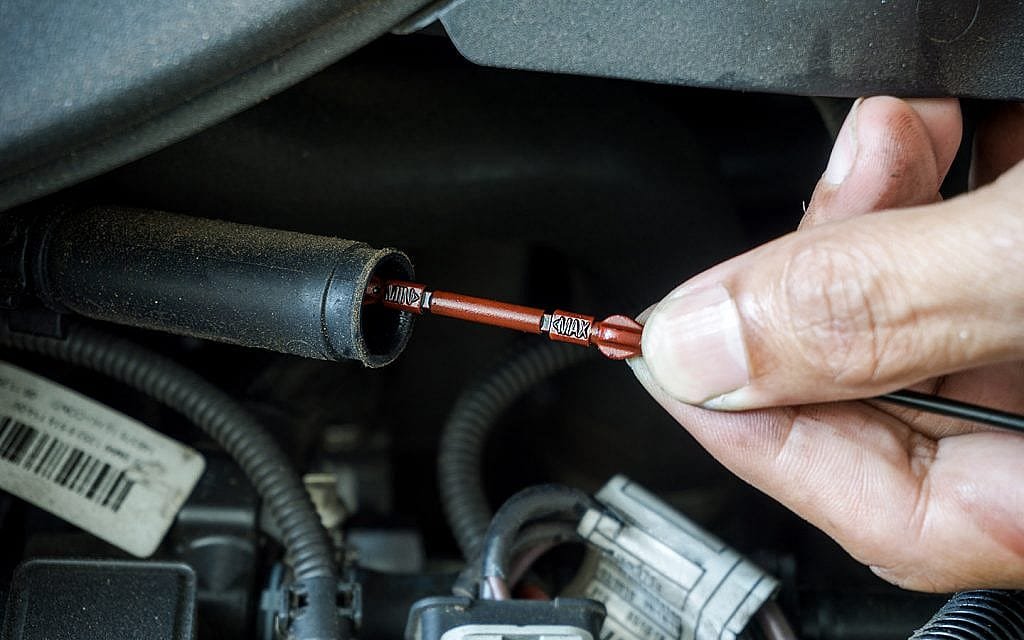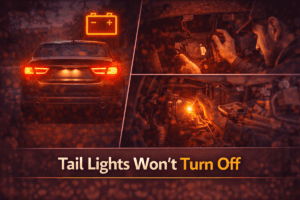You’re driving a 2013 Honda Accord—clean lines, reliable engine, and a car that’s served you well over the years. It’s never left you stranded, but recently, something odd started happening. Every time you press the gas, a soft rattling sound kicks in.
It’s not loud, but it’s there. It’s easy to brush off at first. After all, the car still moves, the check engine light isn’t on, and everything else seems fine. But over time, that rattle sticks in your head. Where’s it coming from? And more importantly—should you be worried?
That’s the kind of sound no one wants to hear. Whether you’re behind the wheel of a compact sedan, a pickup truck, or an SUV, a rattle during acceleration can mean different things. Some are minor, some are serious.
In this guide, we’ll break down the common causes of this issue, how to check for them, and what steps you can take to fix it—without the jargon.
What a Rattling Noise During Acceleration Can Mean
When a car rattles while accelerating, it’s often a sign that something isn’t secured, has worn out, or is starting to fail under load. The noise might happen only under certain conditions—like going uphill, hitting higher RPMs, or after a cold start. It can come from the front, the underside, or even behind the dash.
Here’s the tricky part: rattles can come from dozens of places. But when it only happens as you step on the gas, that narrows things down.
Think of acceleration like putting extra stress on your vehicle. Everything works harder. If something’s loose, cracked, or misaligned, that’s when it tends to make itself heard.
Common Causes of Rattling When Accelerating
Let’s take a closer look at what could be causing that sound.
a. Heat Shields
Heat shields are thin metal covers that protect different parts of your car from the extreme heat created by the exhaust system. Over time, they can rust, crack, or come loose—especially in older vehicles or cars in areas with heavy winter salt use.
When loose, they make a sharp, metallic rattle. You’ll usually hear it from underneath the car, especially when accelerating or revving the engine.
What to do:
Check underneath with a flashlight and tap gently on heat shields. If you spot one that moves or vibrates, that’s your likely culprit. A simple clamp or screw can sometimes fix it.
b. Exhaust System Problems
Your exhaust system includes pipes, hangers, catalytic converters, and mufflers. Any part of this setup that’s loose, broken, or rusted out can make a rattling sound.
How it sounds:
A hollow rattle or deep metallic noise that gets louder as the engine works harder.
Possible issues include:
- Loose exhaust hangers
- Cracked welds
- Rusted-out pipes
- Baffles broken inside the muffler
What to do:
Inspect the exhaust path from front to back. If something wiggles when it shouldn’t, you’ve likely found the issue. A muffler shop can usually repair or replace problem sections.
c. Engine Knock (Ping)
Sometimes rattling is mistaken for a “knocking” or “pinging” noise, which can point to a deeper issue inside the engine. This usually happens when the air-fuel mixture in your engine isn’t igniting properly.
Common causes include:
- Low-octane fuel
- Carbon buildup
- Faulty knock sensor
- Timing issues
This sound is more noticeable under load (like climbing a hill or merging on the freeway). If left unchecked, it can damage engine components over time.
What to do:
Try filling up with higher-octane fuel and see if the noise lessens. If not, a mechanic can check for ignition timing problems, bad sensors, or buildup in the combustion chamber.
d. Loose or Worn Engine Mounts
Engine mounts keep your engine securely in place and absorb vibration. When they wear out, your engine can shift slightly during acceleration, causing parts to hit each other or the body of the car.
How it sounds:
A low, thudding rattle or clunk when pressing the gas.
What to do:
This usually needs a mechanic to diagnose properly. If your engine shifts noticeably when revving or if you feel heavy vibration, mounts are worth checking.
e. Transmission or Drivetrain Issues
A rattle that only happens during gear changes or when accelerating in certain gears could point to a transmission issue or worn-out driveshaft components. Loose flex plates, bad CV joints, or worn universal joints can all cause noise.
What to do:
Check for signs like jerky shifts, transmission slipping, or vibration under load. These may point to a larger issue and should be inspected by a qualified tech.
f. Detonation or Pre-Ignition
This is a more technical issue, but if your engine’s fuel is igniting too early or unevenly, it can create a sharp rattle or ping that’s most noticeable when accelerating. It’s not common in modern cars with knock sensors, but it still happens.
What to do:
This usually requires a diagnostic scan and a closer look at your engine’s ignition and fuel system.
g. Loose Interior or Dash Components
Not all rattles are mechanical. Sometimes, the source is much simpler—like a loose piece inside the dash, glovebox, or center console. Acceleration can cause just enough vibration to make these bits buzz or rattle.
What to do:
Try driving with the glovebox open, or gently tap on trim panels to locate the sound. Soundproofing tape or padding can often solve the problem.
How to Diagnose the Rattle at Home
If you want to try finding the noise yourself before heading to a shop, here’s a step-by-step checklist:
Step 1: Listen Carefully
- Is it coming from the front, middle, or rear?
- Is it only under hard acceleration?
- Does it go away at higher speeds?
- Can you hear it at idle?
Step 2: Do a Visual Inspection
- Look underneath the car with a flashlight.
- Wiggle the exhaust system and check for loose parts.
- Look at the heat shields for signs of movement or rust.
Step 3: Test With the Car in Park
- Gently rev the engine while parked (make sure the parking brake is on).
- If the rattle still happens, it’s likely coming from the engine bay or exhaust.
Step 4: Try Higher Octane Fuel
If you suspect engine pinging, switch to premium fuel for one tank and see if the sound improves.
When to Take It to a Mechanic
Not all rattles are dangerous, but some are warning signs of bigger problems. Here’s when you shouldn’t wait:
- Rattle is getting louder over time
- Car shakes or vibrates under load
- Check engine light is on
- Transmission shifts are rough
- You hear knocking along with performance issues
A mechanic can lift the car, run diagnostics, and check places that are hard to access at home.
Cost to Repair Common Rattle Sources
Here’s a general idea of what you might expect to pay, depending on what’s causing the noise:
| Problem | Estimated Repair Cost (USD) |
| Loose heat shield | $50–$150 |
| Exhaust repair | $100–$500 |
| Engine mount replacement | $300–$700 |
| CV joint or axle | $200–$800 |
| Transmission repair | $500–$2,000+ |
| Engine knock fix | Varies (sensor to rebuild) |
Keep in mind, catching the issue early often saves money. Something small like a loose bracket can cost very little to fix—if addressed in time.
Preventing Rattles in the Future
Once you’ve solved the noise, here are a few ways to help avoid future problems:
- Routine inspections: Have your mechanic check heat shields, mounts, and exhaust during oil changes.
- Avoid harsh acceleration: Especially if your car’s older, hard launches can loosen things up over time.
- Fix small issues early: A minor rattle can become a big repair if ignored.
- Use the right fuel: Always go with the fuel grade recommended in your owner’s manual.
- Keep an ear out: Trust your senses. If your car doesn’t sound right, it probably isn’t.
A rattling noise when accelerating can be annoying, but it’s also your car’s way of saying something that needs attention. Whether it’s a simple loose heat shield or a sign of engine issues, tracking down the sound early can save time, money, and stress later on.
If you’re comfortable doing a few checks at home, you might even solve it yourself. But if you’re unsure, it’s always worth having a trusted mechanic take a closer look. After all, peace of mind behind the wheel is priceless.



